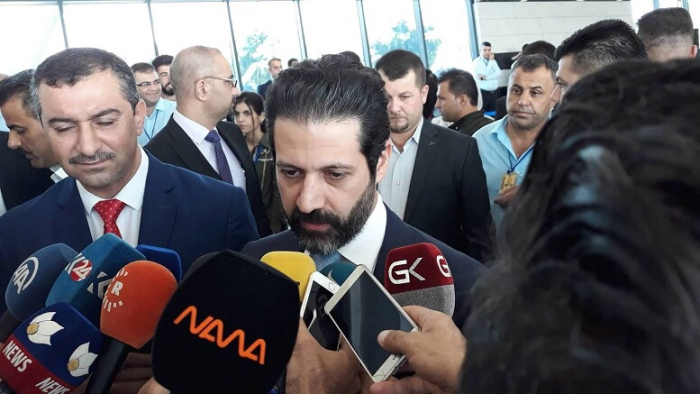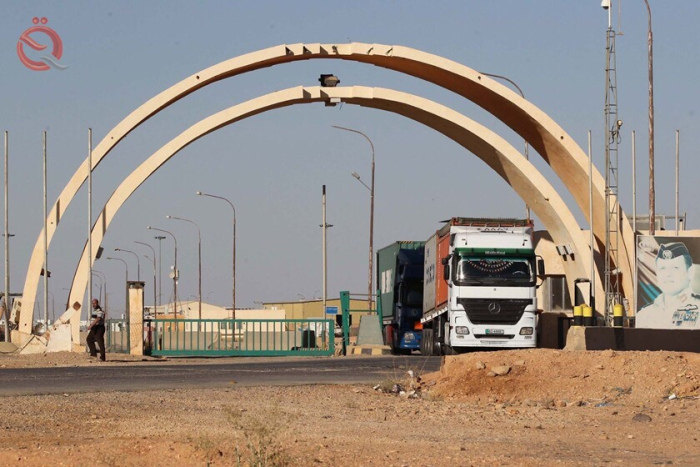Iraqi parliament’s policy fails to hold a session to “end” the US presence amid conflicting statements by his presidency

The failure of the House of Representatives to mobilize members to hold an emergency meeting discuss the end of the US presence through military bases inside Iraq.
This comes at a time of conflicting positions within the Council, on the law of the removal of US forces, until it reached a difference in the positions of the President of the Council Mohammed Halbusi and his deputy Hassan al-Kaabi, especially after the confirmation of US President Donald Trump, the survival of its forces in Iraq;
Parliament Speaker Mohamed Halboussi said that Iraq still needs the efforts of the international community in the fight against terrorism, which is contrary to the position of Hassan al-Kaabi, his deputy for the alliance of others.
Halaboussi said that his country still needs the efforts of the international community in the fight against terrorism and to fulfill its obligations to Iraq and support his government.
Al-Halbusi said that the Iraqi parliament will work in coordination with Prime Minister Adel Abdul-Mahdi to know the actual need for foreign forces.
It comes hours after US President Donald Trump announced the maintenance of a US military base in Iraq so Washington could watch Iran.
“One of the reasons we want to keep US troops is because we want to watch Iran somehow because Iran is a real problem,” Trump said in an interview with CBS.
Despite the speaker’s speech, which appeared less severe, but a member of the Presidency of the House of Representatives Hassan al-Kaabi, said in a statement: “We deplore US President Donald Trump’s statement on the extension of the US presence in Iraq, and justified by monitoring neighboring countries.”
He added: “Everyone has the responsibility to act urgently; to end the US presence, and not to allow Iraq to be a launching pad for aggression or control of any state.”
He stressed that “the House of Representatives will work during the next legislative term, to enact a law that includes the termination of the security agreement with America, as well as the termination of the presence of trainers and advisers American and foreign military in Iraqi territory.”
Keywords: Shafaaq.com
BGG ~ Halaboussi and others (Salih included) should be a little more cautious with their arrogant rhetoric. This, in typical Iraqi fashion… so grateful and appreciative… NOT!!





 (Baghdad: Al-Furat News) President of the Republic Barham Salih, on Monday, the Federal Budget Law for the current year.
(Baghdad: Al-Furat News) President of the Republic Barham Salih, on Monday, the Federal Budget Law for the current year.


 The financial, moral and logistical support of the Central Bank of Iraq and the Association of Iraqi Private Banks and the outstanding participation of private banks in the Baghdad International Book Fair, which will be opened on February 7 under the slogan “One book more than life” on the ground of Baghdad International Fair and under the patronage of the Prime Minister and the presence of government figures Representatives of the private sector, foreign and Arab publishing and distribution companies, and cultural, economic and banking personalities. This confirms the spirit of promoting the hope of the Iraqi people for reform and change to a promising future, especially the economic and cultural elite.
The financial, moral and logistical support of the Central Bank of Iraq and the Association of Iraqi Private Banks and the outstanding participation of private banks in the Baghdad International Book Fair, which will be opened on February 7 under the slogan “One book more than life” on the ground of Baghdad International Fair and under the patronage of the Prime Minister and the presence of government figures Representatives of the private sector, foreign and Arab publishing and distribution companies, and cultural, economic and banking personalities. This confirms the spirit of promoting the hope of the Iraqi people for reform and change to a promising future, especially the economic and cultural elite.